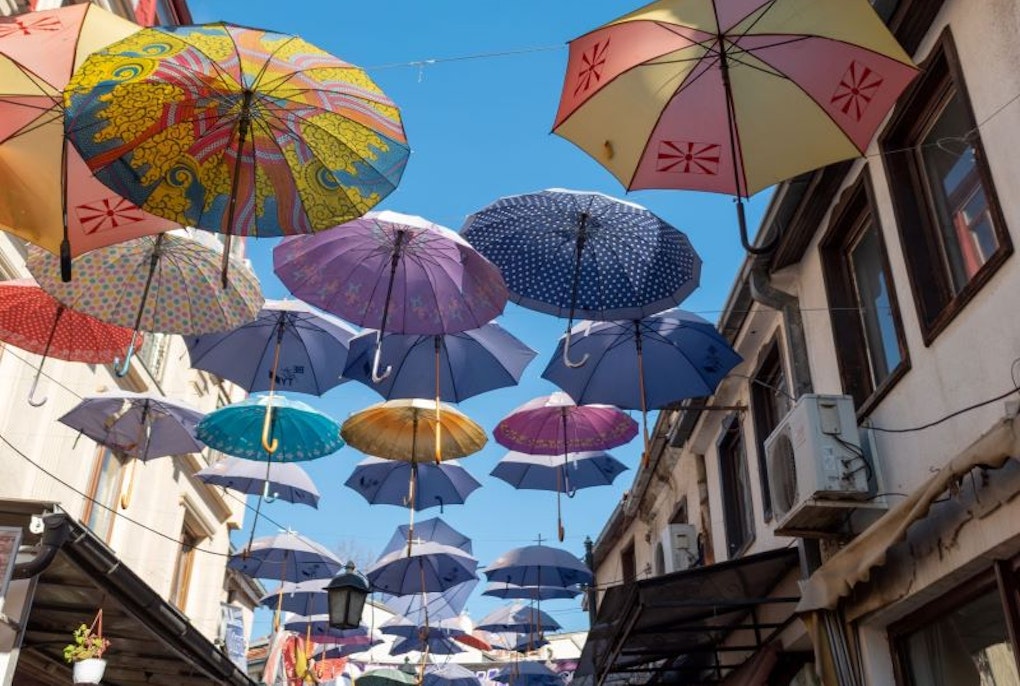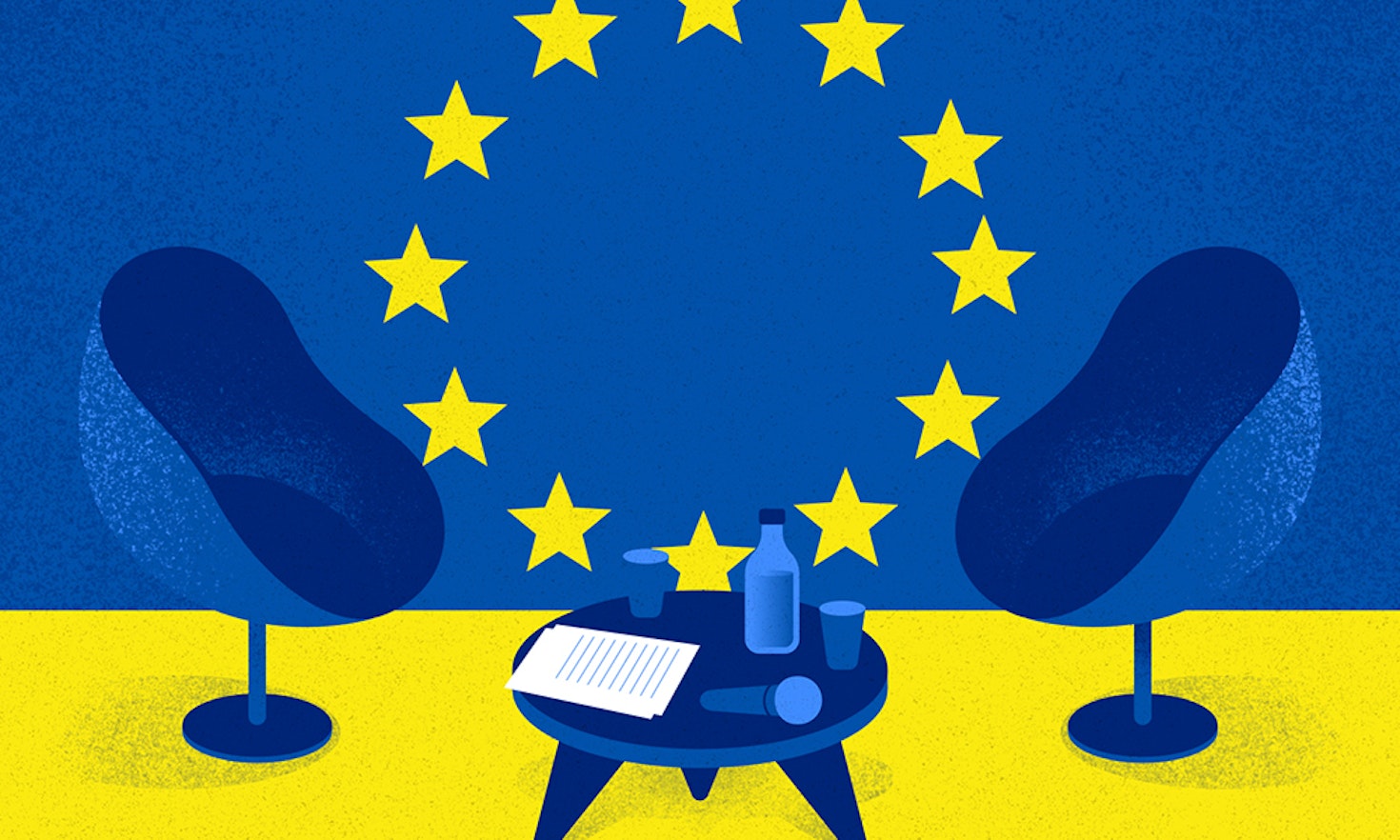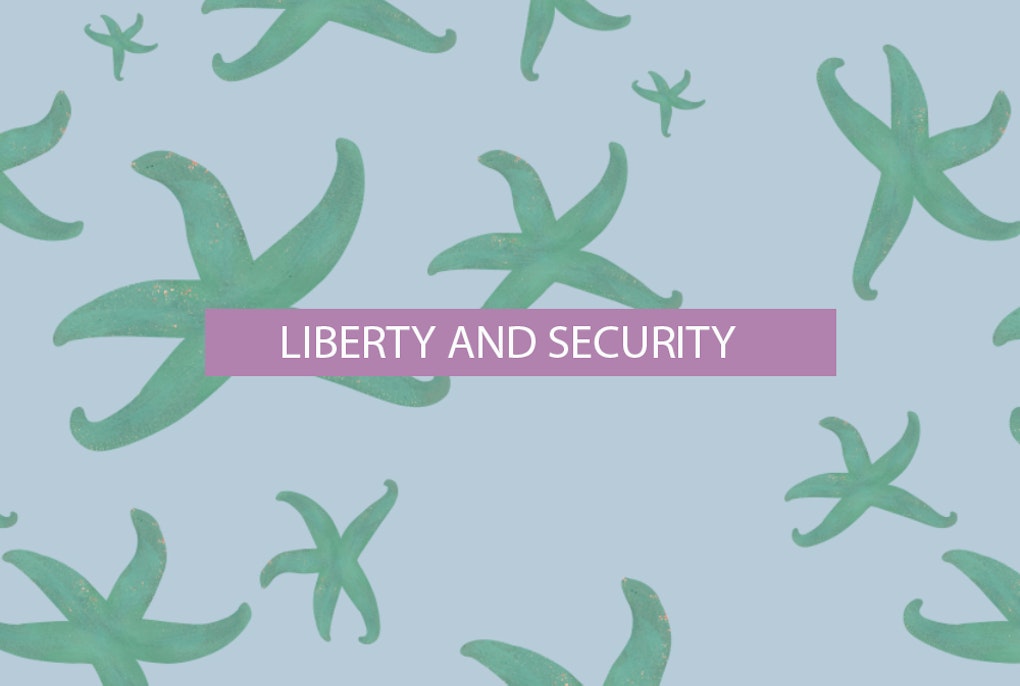
The Administrative state and the right to respect one's private and family life in North Macedonia
 Natalija Shikova
Natalija Shikova

Age: 20
Country of origin: Austria
Country of residence: Italy
Profession: Currently an intern; Future Undergrad student
Q: How does the EU influence your day-to-day life?
A: I was raised in Innsbruck, a rather small city in the mountains of Austria. You may be astonished to hear that 42.2% of the students at the University of Innsbruck are internationals. They mostly come from the neighbouring Germany and Italy. As a European citizen, I can study in any country in the European Union under the same conditions as those who are citizens there. I am going to take advantage of that, as I would like to apply to a university outside of Austria.
I lived in the Netherlands last year, and I’m living in Italy now. These changes of residence within the EU were very uncomplicated, without any need for a visa, etc. My parents sent me rent money to the Netherlands without any issues, thanks to the free movement of capital. While still living in the Netherlands, I traveled to Malaga with little effort (free movement of people) and without having to show my passport (Schengen Agreement). During my short stay there, I could have received public healthcare under the same conditions as people from Spain. I also bought a new phone there, which I was able to bring back to the Netherlands without having to pay customs duties (free movement of goods). Moreover, if I were to buy a new phone in Austria and another one in Spain, and both of them break, I would be sure to get the same kind of guarantee (repair, replacement, or refund) in both countries; since they are both part of the EU, the same consumer rights apply.
Above all, whenever I visit or live in another EU country, I don’t feel like a stranger in the eyes of the people because, despite all our differences, we still have something in common: we are Europeans, with a common identity, sharing the same challenges and enjoying the same privileges.
Q: When you think about the EU, what is the first picture that comes to your mind?
A: The first picture that comes to my mind is the generation gap between my parents and me with respect to the EU. I was raised with the European Union as a daily reality, something that was omnipresent, something I didn’t really have to think about: the European Union existed since my earliest memories, and, for me, there was no way that could change.
My parents on the other hand were there for the creation of the European Union – the excitement, the feeling of something new. Article 50 of the Treaty on European Union which was enacted by the treaty of Lisbon in 2009 gave European countries the right to voluntarily leave the Union, even though nobody thought that this would ever be the case.
Now in 2019, we have experienced the Grexit referendum in 2015 and Brexit in 2016. I think a lot of people see the EU as a kind of annoying watchdog, or perhaps more a parental figure, like a mother. It feels like the EU member states are in delayed puberty, with rebelling against the mother because of the challenges the EU, its member states, and its citizens have and continue to face. But the problems are not examined at their source. It is just the outcome of the problems, which is screened to quickly find a scapegoat. The whole blame is then placed on the mother (and other scapegoats) until the situation becomes so heated that the teenage rebel decides to leave home.
Q: End the sentence: “Twenty years from now the EU … “
A: I have two quite extreme scenarios in mind but please bear in mind that I am 20 years old and therefore I have to be a bit dramatic—that’s my job.
01/07/2039 Dystopian Future: It began with citizens trying to solve major problems by simplistically looking for the nearest scapegoat (whether it was refugees, an ethnic minority, globalisation, or the EU etc.). Europeans became blocked by their fear, staying inside their bubbles, spreading hateful speeches with ‘us versus them’ mindsets. In 2039 ten years have passed since the EU collapsed, and collaboration between states is inconceivable. With the end of the EU, the states became internally divided, even breaking apart altogether. It started with Catalonia and the Basque country in former Spain, and continued with the dissolution of countries like Belgium and Italy. Every state tried to maximize its wellbeing in the short term at the expense of relationships with neighboring states. Citizens looked for a strong woman or man to get them out of the chaos and to represent them well on the global stage as the economically strong country (which in fact they no longer were). Politicians started to twist and turn their constitutions to suit their interests, some of them plan to keep in power over their lifetime. They did not succeed in maintaining good international relationships, nor fulfill their environmental commitments to counter climate change; the air has become polluted, the streets are full of plastic. The situation is dark and the future is very uncertain.
01/07/2039 ‘Utopian’ Future: Twenty years ago there was a trend towards nationalisation. But every movement awakens a counter-movement. The first wake-up call for this particular counter-movement has been the Brexit referendum, 23 years earlier. Since then more and more Europeans became politically active in whatever way they could. Citizens shared the feeling that they had to (metaphorically) ‘fight’ for peace, which made them realise just how precious Europe’s peace was. Communication between public entities and its citizens has since become more fluid. The EU is part of daily conversations and daily news. Europeans came to the conclusion that global problems in a technologised world call for global and encompassing solutions. The EU thinks on a long term basis and does not intervene thoughtlessly in other continents. Treaties, trade, politics especially with unstable or developing countries are handled in a very sensitive manner and with long-term plans in mind which benefit both parties in maybe different time frames.
Q: Choose three adjectives for the EU!
A: Accountable, transparent, but with bad communication skills.
Q: Explain the EU to an 8-year-old child (in elementary school) in one sentence.
A: The EU consists of different countries in Europe that are supported by a set of rules and a few institutions that work for all EU members to maintain peace and overcome big challenges.
Q: If the EU was an animal, what would it be and why?
A: The animal that immediately popped into my head when I read the question was an owl. Admittedly, I am myself not really sure why. Maybe it is because, although not very spectacular, owls are more sympathetic for humans: if you don’t keep an eye on it, you can be sure that it won’t eat you, unlike a lion, which would maybe do so.
Q: Is there a dish (in your country) that describes Europe best, and why?
A: Frittatensuppe! It is a soup which you sometimes prepare in Austria after you have made (salty, neutral tasting) pancakes the day before, but couldn’t finish them all. Since you don’t want to throw the leftover pancakes away, you cut them and put them in a soup.
After World War II, Europe (i.e., the cut pancake) was put into a soup (aka, the European Coal and Steel Community) so it wouldn’t spoil (that is, go back to war). Then it was topped with some fresh chives (the Maastricht Treaty), and voilà! – delicious Frittatensuppe (the European Union).
On a fnal note, I would like to make clear that these answers are not definitive. With every new learning, my perspective, and therefore my opinions, change. These are my very personal conclusions, which I made after the 20 years living (mainly) in the center of Europe. I am very interested in the future of the EU and I hope that we can work together against some of the doubts that I have expressed.
This content is licensed under a Creative Commons Attribution 4.0 International license except for third-party materials or where otherwise noted.

 Natalija Shikova
Natalija Shikova
 Gabriel Toggenburg
Gabriel Toggenburg
 Alessia Setti
Alessia Setti